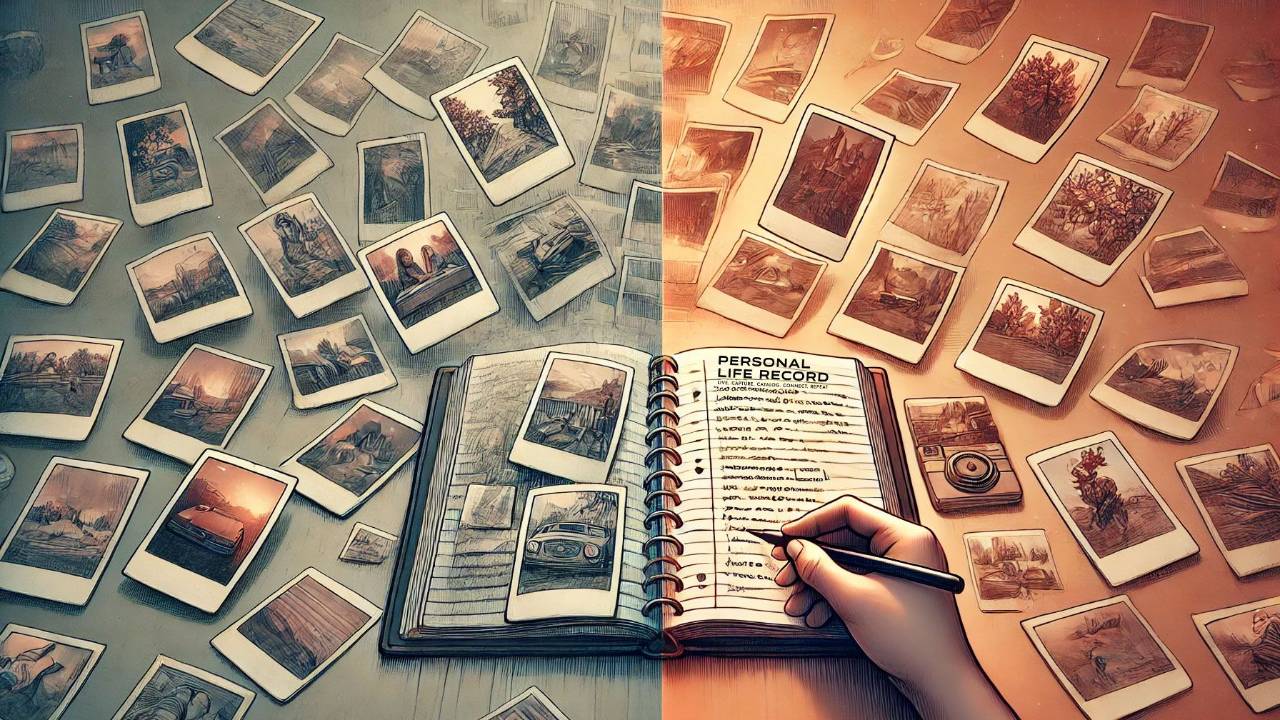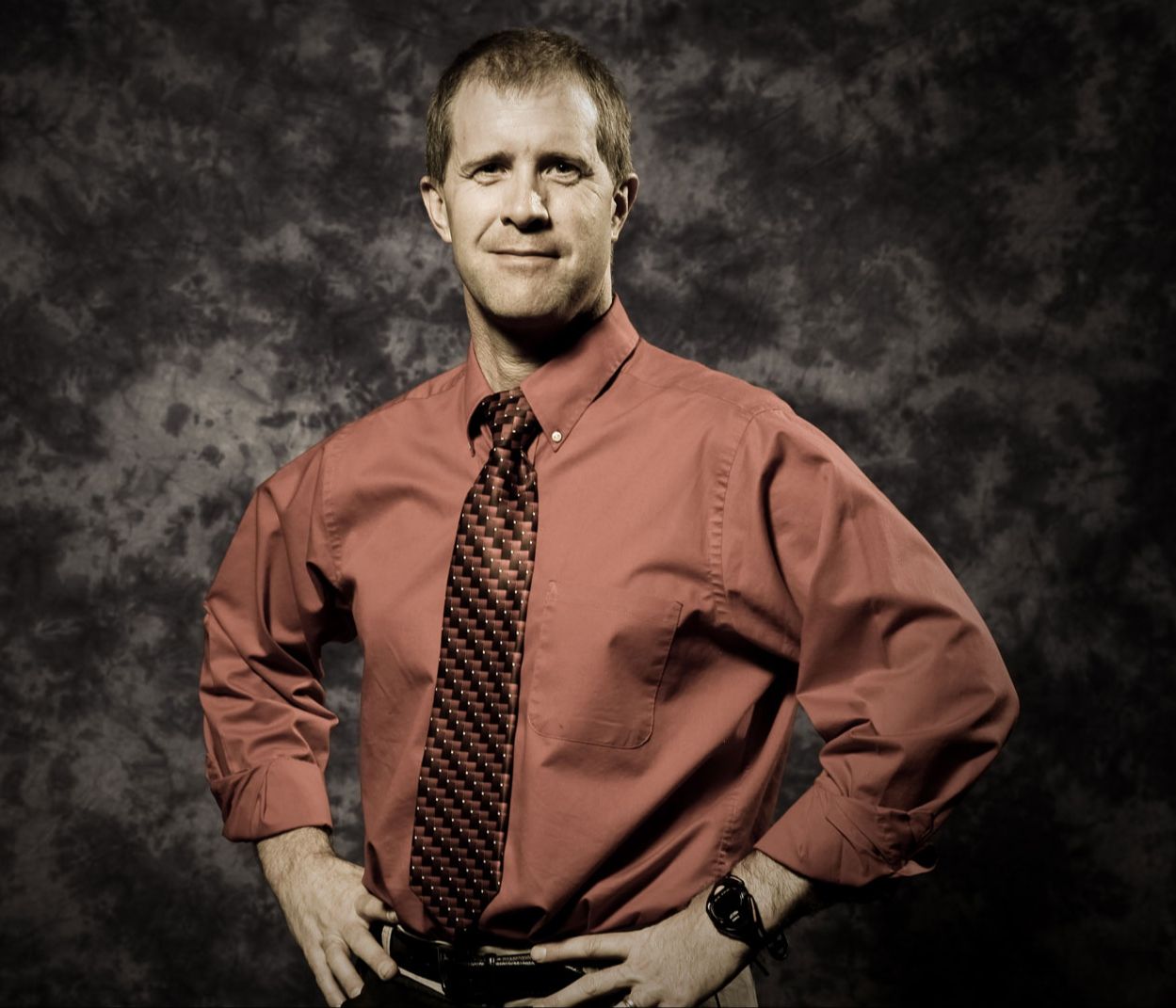You’re Not Capturing the Moments That Matter—Here’s Why

A few days ago, I read a blog post by Seth Godin that struck a nerve. He wrote:
“Learning is a journey of incompetence. First, we realize there’s something we don’t know. Then we see that we’re going to be better at it, and we’re not good at it yet. Then we figure it out and we’ve succeeded. Repeat. The job of the teacher is to create the conditions for the student to explore their incompetence long enough to learn something useful.”
This is exactly what I’ve been trying to say about capturing life’s most important moments.
The Myth of the Perfect Capture
Most of us think we’re pretty good at documenting our lives. We snap photos, craft clever captions, and fill our feeds with highlights. But are we truly capturing the moments that matter? And even if we are, how do we organize and retrieve them—beyond endless scrolling through social media or flipping through stacks of journals and scrapbooks?
Most of us aren’t good at capturing the moments that matter. I know I have a lot to learn and do.
Even when we hire professionals with fancy cameras and years of experience, we’re still doubling down on capturing what it looked like, hoping the images somehow convey what it meant.
We have thousands of photos on our phones and clever captions on our feeds. But are those really preserving the story of the moment? Are they capturing why it mattered, what it felt like, and who we were in that instant?
The truth is, they’re not.
And that’s okay—because we can get better. But first, we need to confront just how much we’re missing.
Why We Need to Feel the Loss
I want people to feel the weight of what they’re leaving behind—not out of cruelty, but because I’ve felt it myself. I feel crushed by all the moments I’ve lost, all the stories I never captured, and all the meaning that slipped through the cracks.
I want you to pause and ask yourself: Am I really capturing my life in a meaningful way?
For some, that realization might feel like a sense of loss—I’ve been missing so much. For others, it might feel overwhelming—what do I do with all these photos, captions, and scattered memories?
It’s not mean or evil to want people to feel this way; it’s necessary. Nothing will change until we realize the weight of what we’re missing and the urgency of taking action.
Nothing changes until we realize there’s a problem worth solving. Once we see the gaps, the next step is to create a process that connects what we’re capturing with what we’re truly trying to preserve into a framework that lets us find it again.
Learning Through Exploration, Not Spoon-Feeding
I don’t want to give people a step-by-step guide to creating their life stories. That might sound counterintuitive for someone who’s creating a workbook, a framework, and a system. But I don’t believe in spoon-feeding answers.
Instead, I want to open a curiosity loop in your mind—one that drives you to explore your competence long enough to learn something meaningful. I want you to ask:
- What is the best way to capture my life?
- How can I organize what happened, why it happened, what it felt like, and what it meant?
The answers won’t come from me alone. They’ll come from a conversation—a collaboration—between the processes I’ve developed and your unique life, routines, and insights.
You won't just follow instructions when you engage with the PLR system. You’ll customize it, making it your own. You’ll discover workflows and questions that fit your life in sustainable, actionable, and rewarding ways.
Even if you don’t adopt the full system, you might walk away with a few new ideas that enrich how you capture, organize, and reflect on your memories.
Why It Matters
Having a personal life record isn’t about following a rigid system—it’s about knowing which questions to ask: of your day, your experiences, and the people you love. It’s about creating a process to capture the sharp, faceted details that give memories their depth and spark.
Here’s what I believe: facts and specific details are the guardrails of our memories. Without them, our recollections risk fading away, losing their context and clarity.
That’s why the PLR system exists: to help you document the who, what, when, and where of your life, along with the reflections and emotions that make those moments meaningful. It provides an intuitive, organized space to store these moments so you can revisit, reflect, and build on them when the time is right.
This isn’t about creating a perfectly polished story all at once. It’s about giving yourself the tools and structure to capture the details now, ensuring they’re there to reflect on and write about later. It’s about preserving the essence of who you are and what matters most.
The Revelation Is Yours
So, here’s my challenge: Are you truly capturing your life or just the surface of it? Are you preserving your moments’ depth, meaning, and context—or are they slipping away in a sea of unorganized photos and captions? Once you capture them, can you find them again quickly?
If you feel overwhelmed by the answer, good. That’s the starting point. The next step is realizing you can get better at it—and that you’re not good at it yet. But you'll figure it out with the right tools, a little guidance, and your curiosity.
And when you do, the story you’ll leave behind will be worth telling.
What story will you tell tomorrow that begins with the moments you capture today?


